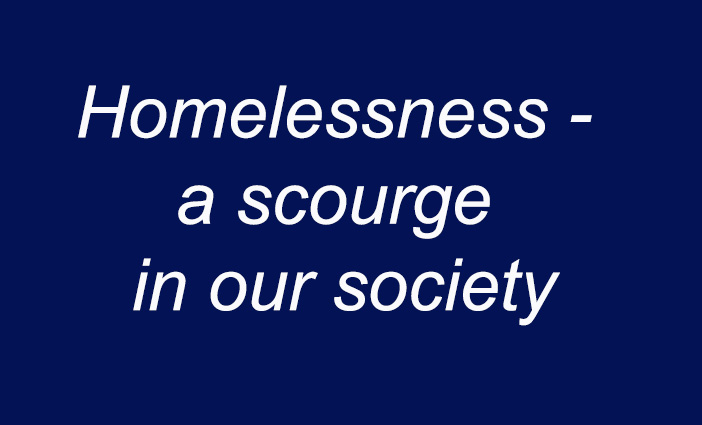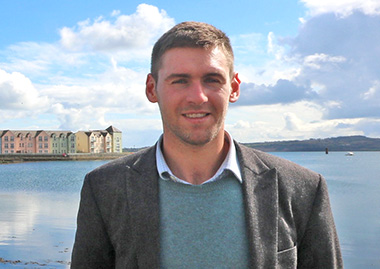Homelessness: A Housing System in Need of Change
Homelessness is considered by many organisations at the coal face to be a growing social crisis which does not look as though it is going to go away tomorrow writes Kevin McAteer.
The link between the welfare state and social housing is the area where many eyes are now drawn. And some may even argue, are closed.
One basic controversy around homelessness is the increase in the number of private landlords who push the system to a point where rent becomes unaffordable. Are we now looking at a case where there is low social housing stock housing available generally, and too little available being made available from the Northern Ireland Housing Executive (NIHE)?

As of the 31st March 2019, 1,244 people presented as homeless to the NIHE. However to date in the Newry Mourne & Down District Counci area, there have been 47 social housing units completed in 2019/20, and 284 social housing units are under construction.
Furthermore, 571 social housing units are programmed to start through the Social Housing Development Programme (SHDP) 2019/20 – 2021/22 according to the ‘Newry Mourne & Down Council SHDP’ update 16th January 2020). It seems there is a case to answer whereby not enough social housing is being built. Is it simply the case that these projected units are not being built quick enough?
The housing system itself is in need of a major overhaul particularly when we are potentially one pay cheque away from the vulnerability of homelessness. Now, just put someone in that position whereby they have no job, they are on welfare benefits and they need a place to live. urgently.
They turn to the NI Housing Executive with no house, facing a long waiting list, and not enough points to get them a roof over their head.. They now find themselves in a dilemma. It seems a precarious situation with no escape. They turn to the private sector whereby they are out-priced with extortionate rent and although they receive some help with benefits, they are unable to make up the shortfall.
South Down SDLP MLA Sinead Bradley said: “Increasingly, the SDLP constituency offices are being made aware of the overwhelming numbers of people facing or living in a state of homelessness.

“Many individuals or family groups find themselves dependent on the good will of family or friends to offer short-term accommodation. The only other alternative is to remove themselves from their community and accept temporary accommodation, often much further away.
“The demeaning and unsettled lifestyle that comes from being homeless presents great challenges to everyday life and further compromises the wellbeing of those forced to live this way. The SDLP are committed to working within the Executive to find real solutions to this growing problem.
“Social policies that allow ease of access to the private rental markets, whilst committing to removing the barriers that are preventing housing developments and affordable housing options are amongst the challenges that must be considered.”
The introduction of Universal Credit in the district has also exacerbated the homelessness issue. Seen by many as a divisive government policy, it has received much criticism nationwide.
A spokesperson for the Department of Communities said: “Universal Credit is paid in arrears and people claiming Universal Credit will not receive their first payment until five weeks after they make their claim. 95% of people claiming UC get their first payment exactly when it is due.
“Anyone who finds themselves in financial hardship during this five-week period can make a claim for an Advance Payment. Financial assistance is also available through the Universal Credit Contingency Fund and the Department’s Discretionary Support Service.
“In addition, the new Communities Minister Deirdre Hargey recognises the negative impact that the five-week wait for a first Universal Credit payment can have on people. As this five-week period is set out in legislation, Minister Hargey has asked her officials to look into what other measures can be put in place to help people facing hardship due to the wait.”
Despite housing benefit being included in universal credit a lot of controversy has arisen with claims that tenants now receive the benefit directly as opposed to the landlords receiving it.
The Department of Communities added: “The housing element of Universal Credit is paid directly to landlords as the default option. People claiming Universal Credit can opt out and have the housing element paid to them in certain circumstances.”
There has been a substantial increase in landlords locally who will not accept DHSS rent payments. This is due to Universal Credit causing a delay for landlords receiving their housing payment from the Department of Communities. So, does this make it more difficult for those on benefits to seek private accommodation?
Responding to Universal Credit the Department further said: “We work closely with the Northern Ireland Housing Executive to make sure that within Universal Credit, there is a range of support available to help those most in need and the poorest across our society who are homeless. or at risk of homelessness.
“This includes support to help make and maintain a claim, easements for those who are homeless or at risk of homelessness, and personal budgeting support to help with budgeting advice and debt problems; alongside the associated support provided by the advice sector.
“The Department’s network of Jobs & Benefits offices is also working with a broad range of stakeholders including, for example, the Belfast Welcome Centre to support vulnerable people and those most in need access the benefit system.
“In the 2019/20 financial year, the Department is investing £36.1million to provide vital support services to ensure the most vulnerable in our society are protected, including preventing homelessness and providing temporary accommodation.
“The reasons for homelessness continue to be linked to wider societal issues. Housing has a central role to play but tackling homelessness requires a collaborative response from across all in society including the statutory, voluntary and community sectors. For this reason the Department is leading on a Cross Departmental Action Plan to help address the underlying reasons why people may find themselves in a homeless situation. In addition the Department continues to prioritise the delivery of new social housing to address social housing need.”

The Alliance Party Councillor Patrick Brown also commented to Down News and said: “There is no doubt that homelessness has increased across Northern Ireland since the start of Tory Austerity in 2010. This has not only cut benefits to vulnerable individuals but has also reduced public spending in vital support services on which they rely, such as mental health support.
“With the conservatives in power for another long five years, it is vital that the devolved and local governments of Northern Ireland step up and address the growing homelessness crisis head on. We would do well to look at the example of Finland and other Nordic countries which have effectively eliminated rough sleeping through a home first policy – meaning individuals are guaranteed a roof over their heads regardless of their situation. We also desperately need to invest in more social housing, mental healths services and ensure welfare mitigations do not come to an end in March.”
It is obvious that the issue of homelessness is a major ongoing crisis in our society and that it will not improve until the relevant agencies, charities, organisations involved and indeed the NI Assembly itself, bites the bullet and invests in housing through a proper strategy (which should be in their Programme for Government).
More social housing and changes to the benefit system are top of a long list of potential transformations that are needed. But these changes may not resolve the homlessness issue completely as I believe that other factors are involved including social issues, mental health etc.
Could the streets of County Down ever reach the level of homelessness with rough sleepers that exists in Dublin 90 minutes down the motorway from Newry????
Despite the amazing work of local charities, it is essential that central government provides the necessary funds and support to tackle this ever-growing human problem that appears to be getting worse.
























